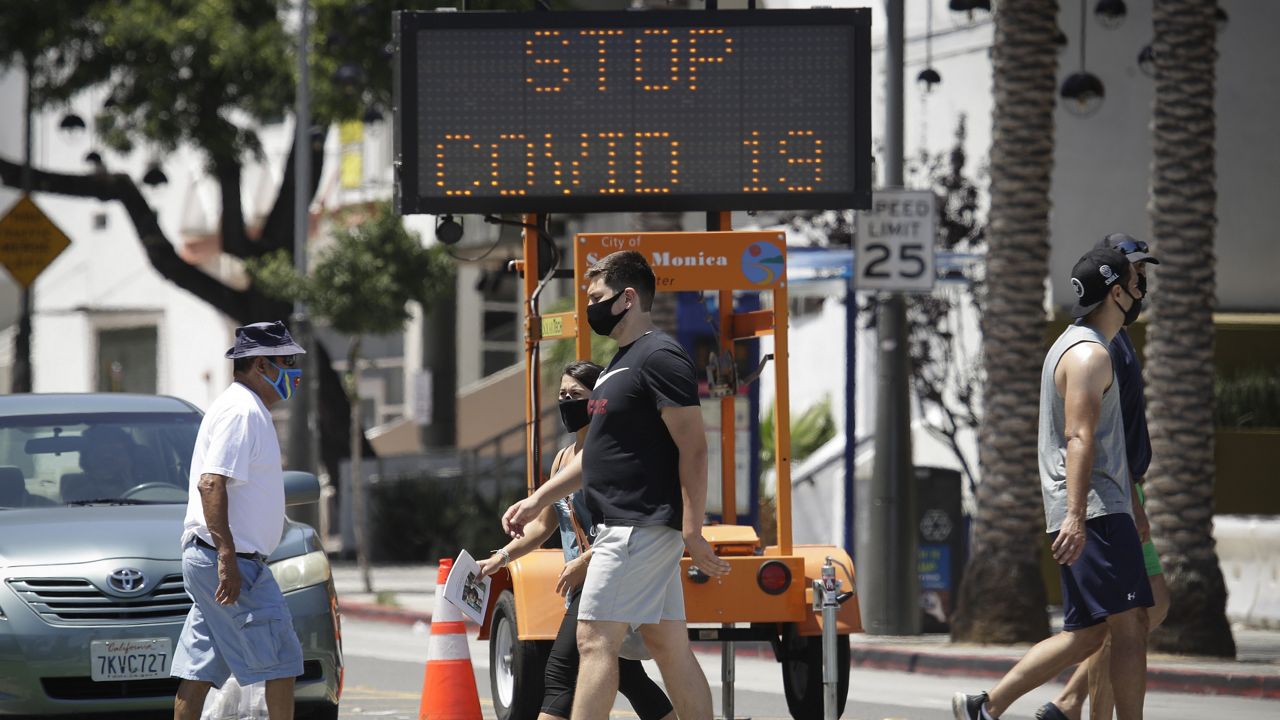NATIONWIDE — For about six percent of people who died of coronavirus, COVID-19 was the only cause of death listed. That’s according to an updated report on excess deaths associated with the pandemic that was recently released by the Centers for Disease Control.
That means nearly 95 percent of coronavirus deaths involved people with other underlying health issues.
On average, those who lost their lives to coronavirus had two to three other conditions that complicated their COVID-19 infections.
The National Center for Health Statistics has a complex system of codes that physicians are trained to use when reporting deaths. In April additional guidance was released on how to classify deaths caused by COVID-19. Over the past several days there has been a lot of talk about the significance of the recently updated excess deaths report, an effort by some to cast the blame of these untimely deaths on an unhealthy population, rather than on how the government responded to the pandemic.
Many have misinterpreted or distorted this data. Twitter on Sunday deleted a post that was retweeted by President Donald Trump making the false claim that the COVID-19 pandemic has not been as deadly as previous reported, saying the Tweet "is no longer available because it violated the Twitter Rules."
Amesh Adalja, a senior scholar at the Johns Hopkins Center for Health Security, told Spectrum News that the granular data on the lives lost to COVID-19 should be applauded, not politicized.
“The fact that the death numbers are getting misinterpreted and being fodder for conspiracy theories just shows how much scientific literacy has fallen in this country," Adalja said. "That people are really looking for excuses to try and minimize COVID-19 and really ignoring very obvious things; that COVID-19 is going to be a contributor to the death of people with comorbid conditions. The more accurate a death certificate is, the more contributing factors that are on it, the better, because we get a better understanding of what's happening with these patients.”
The CDC report says the top conditions found among those who died of COVID-19 are:
- Alzheimer's disease and dementia
- Hypertensive diseases
- Heart disease
- Diabetes
- Cerebrovascular diseases (which can lead to stroke)
Lorna Thorpe, the director of the Division of Epidemiology at the NYU Grossman School of Medicine, told Spectrum News that viral infections like COVID-19 aren’t usually the ultimate cause of death.
In most cases, she said, the infection triggers an immediate cascade of reactions in the body; it’s those complications that lead to death.
“I actually would probably consider that six percent to be an incomplete death certificate" Thorpe said. "Not in every case, but it may be that this person died of COVID and they had laboratory confirmed COVID illness, but there was not sufficient information about any other events that led to their ultimate death,” said Thorpe.
The speed with which the coronavirus has ripped through communities, in some cases crippling hospitals and the ability of staff to spend appropriate time on administrative tasks, has exposed the need for better communication on how to properly record deaths, Thorpe added.
“We can do better, but it does take days for information to be accurately coded and confirmed at the state level, transmitted to the Centers for Disease Control, verified, quality checked and then reported. And there's variation around the country in the speed at which these deaths are being reported. And there’s variation in quality as well,” said Thorpe. “So I do think that there can be greater efforts to really make sure that physicians and health care institutions, medical examiners, offices, et cetera, know the latest definitions on standardized reporting for COVID-19 deaths, both direct influences and indirect influences.”
What the data does show, says Adalja, is that more than 183,000 lives were lost too soon to coronavirus.
“We know that excess mortality in places that were hit hard, for example, New York City in March and April, if you compare that to March and April of a year prior, it's very, very different. So it is clear that COVID19 is killing people earlier than they would have died otherwise,” Adalja added. “It may be true that some of those individuals might have had a limited lifespan, but COVID-19, hastened their deaths. So that doesn't mean that that this death was something that was a foregone conclusion.”



